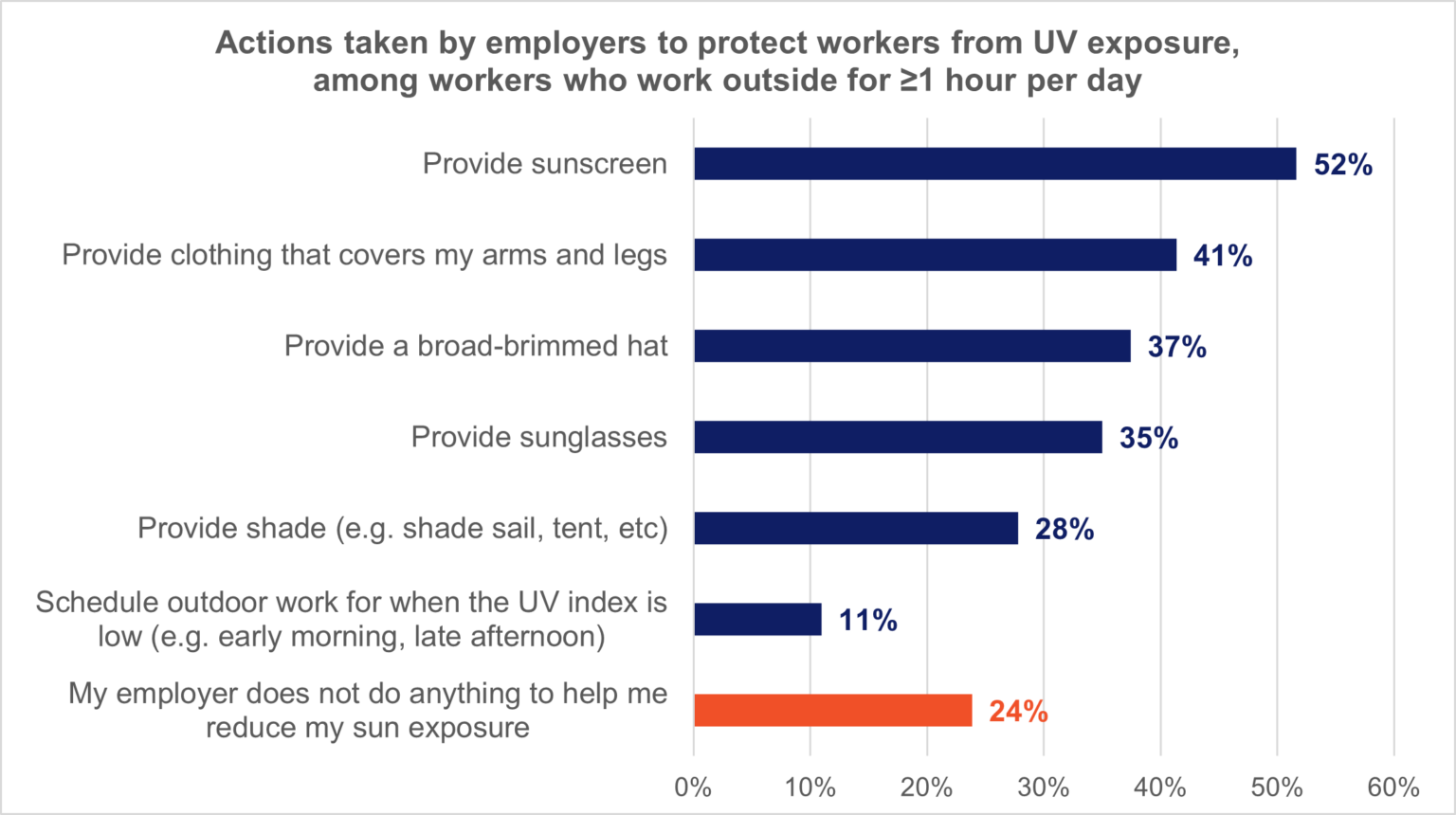
New report finds 24% of outdoor workers not given protection to mitigate UV exposure

Cancer Council WA has issued a strong call to Western Australian employers to bolster their efforts in safeguarding outdoor workers from harmful ultraviolet (UV) exposure.
This call follows the results of a recent survey conducted during Safe Work Month 2023, which revealed that 24% of outdoor workers reported that their employers took no measures to mitigate their exposure to the sun's damaging rays.
Sally Blane, SunSmart Manager at Cancer Council WA, emphasised the critical responsibility of employers to ensure a safe working environment.
"It is alarming that 24% of outdoor workers report no action from their employers to mitigate UV exposure, despite the well-known risks of skin cancer," Blane said in a statement.
The survey also found that while 52% of outdoor workers indicated that their employer provided sunscreen, the provision of other essential protective equipment was markedly lower.
Only 37% reported receiving broad-brimmed hats, 35% were provided with sunglasses, and just 41% had access to long-sleeved clothing designed to cover their arms and legs.

Source: Cancer Council WA
"Employers have a clear responsibility to safeguard their workers from harmful sun exposure, especially as UV radiation is a class 1 carcinogen," Blane stated.
She urged employers to adopt simple and cost-effective measures that could reduce UV exposure among outdoor workers, including providing protective equipment such as sun hats, sunglasses, and sunscreen, establishing shaded work areas, and modifying work schedules to minimise sun exposure during peak UV times.
"With more than 90% of skin cancer cases in Australia being preventable, we can't afford for employers to be complacent," Blane added.
The council's call also came as a recent report from the International Labour Organisation revealed that occupational injuries due to excessive heat reached 22.8 million in 2020.
The Asia-Pacific region logged the highest occupational injuries attributable to excessive heat with 10.5 million cases, where 5.8% were fatal.